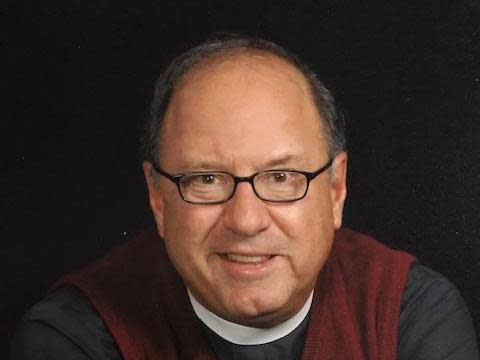Henry Idema: Politics from the pulpit: Yes or no?
As we approach the presidential election next November, and as we are now in the midst of primaries, what do you think of politics being preached from the pulpit? In an excellent new book, "The Kingdom, the Power, and the Glory (American Evangelicals in an Age of Extremism)" by Michigan native Tim Alberta, the author documents how thousands of churches have been split apart by politics.
The main issue Alberta documents is whether a preacher's political preferences are shared from the pulpit, and the flak she or he encounters if these preferences are either hidden or obvious. If hidden, Alberta shows that this apparent lack of enthusiasm for a particular politician can be deadly for job security. And if the preacher's politics are made known from the pulpit, Alberta shows that this can be equally deadly for holding one's job if the political views being shared run up against the majority of the political preferences by those sitting in the pews. Sounds like an impossible hot seat!

The literal meaning of politics means the business of the city. So obviously under this broad umbrella, there are a plethora of issues that should be addressed in a sermon. I think here we must make a crucial distinction. Moral issues in our society should be addressed whereas being for or against someone running for an office should not, in my view, be expressed.
If a church becomes an advocate for presidential candidates, that support puts in question the church's tax exemption — or it should be questioned!
If preachers do not show support for any single political candidate, do you think that the moral issues pressing upon us should also not be addressed from the pulpit? Before you answer that question, consider this: Almost everything Jesus taught, as well as the prophets such as Isaiah or Jeremiah, has moral teaching, ethical instruction and harsh warnings for us if we neglect moral choices. Here is just one example from the Sermon on the Mount: "You have heard that it was said, 'You shall not commit adultery.' But I say to you that every one who looks at a woman lustfully has already committed adultery with her in his heart." (Matthew 5:27-28)
Or consider this warning from Jeremiah: "Where are your gods that you made for yourself? Let them arise, if they can save you, in your time of trouble?" (Jeremiah 2:28)
Think of all the moral issues that could be addressed in a sermon from just those two examples, e.g., the sexual behavior and desires of our political candidates as a moral issue without naming names. Or consider all the false gods we have created in American society from rock stars to football players, not to speak of the god of money which truly seems to be America's favorite god.
If preachers fail to address the moral issues of the day, he or she commits the sin of silence. During the '50s and '60s too may preachers, especially in white congregations, failed to preach on the evils of segregation, with devastating results for Black Americans. We can look back in hindsight and see this. But do not underestimate the courage it would have taken to denounce racism and segregation back then. Many preachers had that kind of courage and many lost their positions, even their lives, especially in the South.
So what are the moral issues of our day that should be addressed from the pulpit or in classes within churches? Abortion will be a hot-button issue in November. How about the banning of assault rifles in light of almost daily mass murders? Has your preacher condemned the killing of innocent people, especially women in children in Gaza, and did he or she condemn Hamas after the massacre in Israel on Oct. 7? Does your church support voting rights for all people? Does your preacher support or condemn Russia and Putin for its invasion of Ukraine? And then there is the immigration issue, and not unrelated to immigration is the shameful amount of homeless people in our society. Add in here the issue of lack of funding for mental health.
My point is simply this: Individual politicians should not be named from the pulpit while they are running for office, but the moral issues facing our society must be addressed. A failure of courage to do this means that the church is silent on the moral issues facing our society, which is a failure of leadership and a failure to follow the teachings of Jesus and the prophets.
— Henry Idema lives in Grand Haven. He can be reached at henryidema3@yahoo.com.
This article originally appeared on The Holland Sentinel: Henry Idema: Politics from the pulpit: Yes or no?
